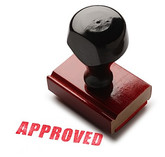Biosimilars
Switching to biosimilar infliximab in IBD patients
Biological agents, such as infliximab, have transformed the outcomes of patients with immune-mediated inflammatory diseases. The advent of biosimilar treatment options, such as CT‑P13 (Remsima/Inflectra), promises to improve the availability of biological therapy.
Biosimilars in oncology in the US
As part of the Affordable Care Act of 2010, the Biologics Price Competition and Innovation Act of 2009 (BPCI Act) allows for an abbreviated license pathway for the approval of biosimilars in the US. In light of continuing increases in healthcare costs, particularly for cancer drugs, use of biosimilars is increasingly being considered as a strategy for containing the cost of cancer care, according to Dr Gary Lyman of the Fred Hutchinson Cancer Research Center and University of Washington, Seattle, WA, USA [1, 2].
EC approval for adalimumab biosimilar Cyltezo
Germany-based Boehringer Ingelheim Pharmaceuticals (Boehringer) announced on 13 November 2017 that it had received European Commission (EC) approval for its biosimilar adalimumab product Cyltezo (BI 695501).
Loss of efficacy after switching to biosimilar infliximab in Behcet’s patients
Authors from the Division of Rheumatology at the Hospital of Prato, Italy report on three patients with Behçet’s disease that experienced disease relapses after switching from the originator infliximab, Remicade, to biosimilar infliximab [1].
Adalimumab and trastuzumab biosimilars approved in South Korea
South Korean biosimilars maker Samsung Bioepis announced on 9 November 2017 that it had received marketing approval for its biosimilar version of Roche’s blockbuster breast cancer therapy Herceptin (trastuzumab) from Korea’s Ministry of Food and Drug Safety (MFDS). The news follows another announcement by the company on 22 September 2017 that it had also gained approval for its adalimumab biosimilar (SB5).
Opportunities and challenges for biosimilars in oncology
The rapid increase in healthcare costs, particularly for cancer drugs, has had a major impact on providers, practices, payers and patients, according to Dr Gary Lyman of the Fred Hutchinson Cancer Research Center and University of Washington, Seattle, WA, USA [1, 2].
UK launches campaign to promote research on biosimilars
A new campaign launched by the UK’s National Institute for Health Research (NIHR) aims to unlock the potential benefits of biosimilars in the National Health Service (NHS) through clinical trials.
Phase III switching data support long-term efficacy and safety of rituximab biosimilar Truxima
Results of a phase III extension study have shown that Celltrion Healthcare’s (Celltrion) rituximab biosimilar (Truxima, CT-P10) is comparable to Roche’s MabThera/Rituxan, according to the South Korean biotechnology company.
Humira deal could cost CMS US$1.48 billion
The settlement deal made between US-based biotech giant Amgen and pharma giant AbbVie regarding AbbVie’s blockbuster arthritis drug Humira (adalimumab) could cost the US Centers for Medicare and Medicaid Services (CMS) at least US$1.48 billion.
Physicochemical and biological characterization study of copy biological tocilizumab
Researchers in China have developed a copy biological of F. Hoffmann-La Roche’s (Roche) arthritis treatment Actemra (tocilizumab). A recent study compares it to the originator, finding it to be highly similar in terms of its physical, chemical and biological characteristics [1].












